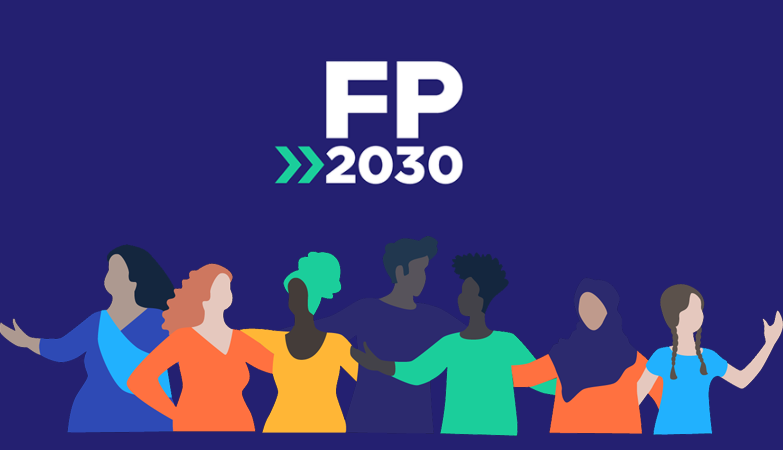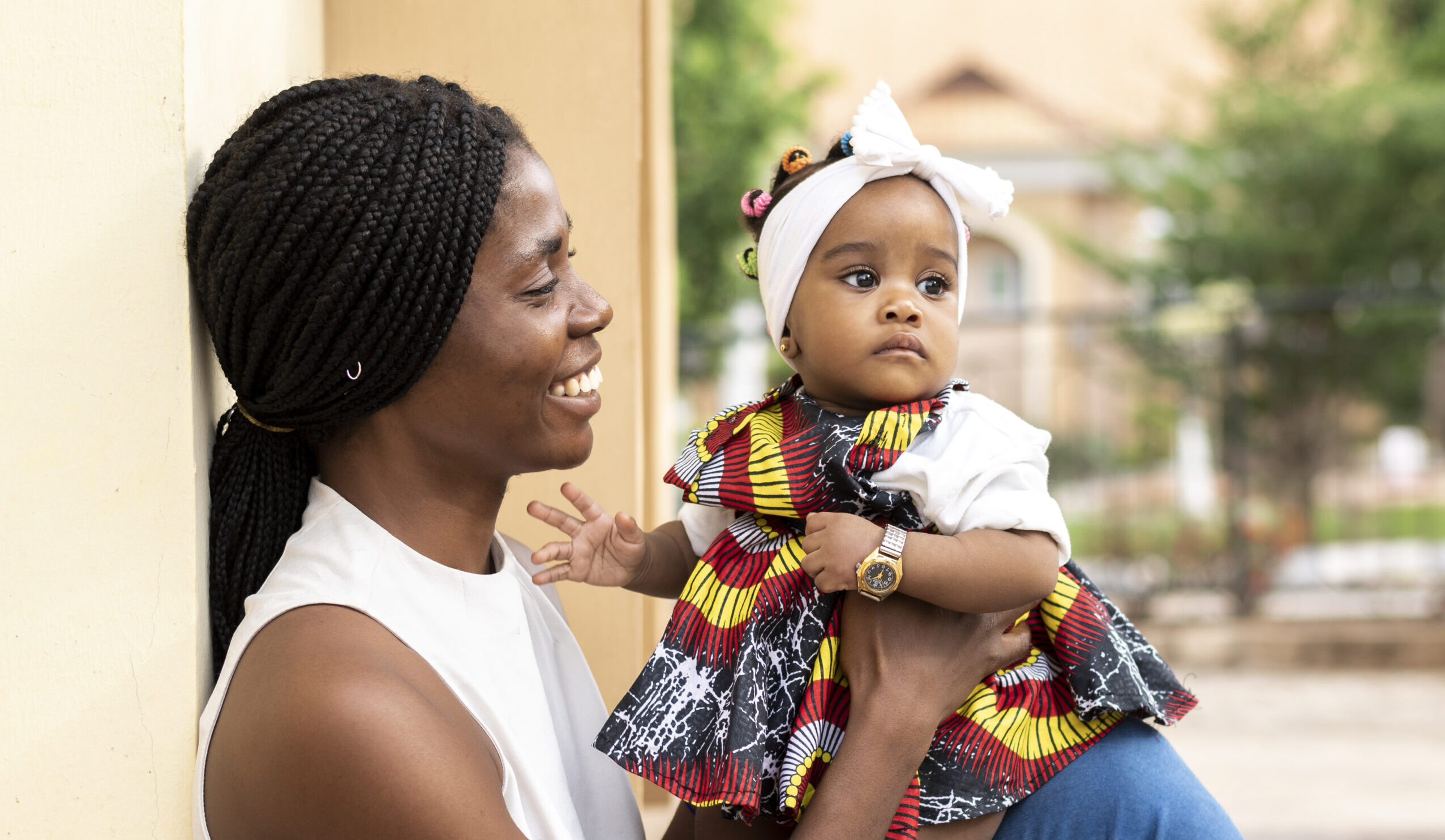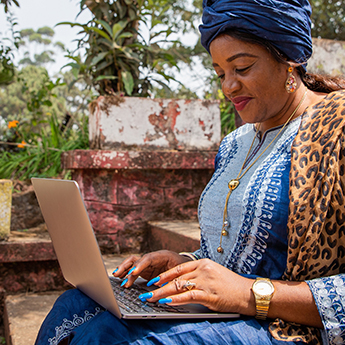
News
News and Updates from FP2030
March 2, 2021
FP2030 Newsletters
Previous

The Arc of Progress, 2012-2020: What You Need to K...
Next

APHRC and Guttmacher Institute announce partnershi...
Source: FP2030
Topics:
COVID-19 & Family Planning
Emergency Preparedness & Response
Rights-Based Family Planning
Service Delivery & Quality
Dear colleagues,
Welcome to FP2030!
We were so excited to launch the next iteration of our global partnership in late January during a series of events and webinars, and we’ll be sharing more information as 2021 – our year of transition – unfolds. In the coming weeks and months, we will be hosting a series of webinars and discussions about the FP2030 partnership, from how our measurement framework has adapted, to how you can make your own commitment. You can get a jump on this discussion by visiting our FP2030 Commitments site. We are continuing to add resources every day to help guide governments and other stakeholders as they develop their commitments. We also established a Transition Oversight Group (TOG) to oversee the transition of our governance and architecture, and to support the search for the next Executive Director – you can learn more about the TOG here. We hope you’ll join us throughout the year as we set up the partnership for success to 2030!
I hope by now you have had a chance also to review FP2020: the Arc of Progress, the last progress report of the FP2020 partnership. As 2020 was the final year, the report not only looked at the progress since the previous year, but also at the progress we have made over the eight years of this unique partnership. Together, countries, donors, NGOs and researchers could collaborate to address barriers to family planning for women and girls. Together we have built programs that are more effective, that center rights and in doing so, created a path so that 60 million additional women and girls are now able to use family planning, to plan for their futures, and build stronger communities.
In this newsletter, we take a closer look at the data from this year’s report. Sesi Aliu, FP2030 Manager, Data & Performance Management, provides an excellent overview of what we learned, including how our collaboration has improved contraceptive equity, as well as the information people have when choosing a method of contraception and the range of contraceptives available.
The measurement period for this report ended in July, as the COVID pandemic was raging globally, shutting down supply lines and health centers — and data collection. We know from our collective experience that COVID caused major disruptions in access to family planning services and commodities; however, we are only just beginning to see the data on exactly what happened, and how countries continue to respond. Director of Data and Performance Management Jason Bremner has an update of how researchers are monitoring the impact of COVID and what the data are beginning to tell us. Working with the COVID-19 Task Team, we will share more information as it becomes available later in the year.
As always, you can explore the data yourself by visiting the progress report online.
We are looking forward to building this next partnership with you.
Warmly,
Beth Schlachter
Executive Director


Measuring Uncertainty: Read the Latest Brief in FP2020 and Track20’s Measurement Learning Series
In 2020, FP2020 and Track20 set out to explore the successes, challenges, and lessons of FP2020’s measurement agenda, and discuss the implications for the FP2030 partnership.
Uncertainty exists in all estimates (e.g. modern contraceptive prevalence) because we cannot observe data for every individual in a country, and it is usually expressed as an uncertainty interval or range (or as upper and lower bounds) around a point estimate. Greater understanding of these uncertainty ranges can allow countries to better assess the precision of their data, understand changes in key family planning indicators, and evaluate whether country-level efforts (policies and programs) are resulting in progress toward their goals.

First Look: The Impact of COVID-19 on Family Planning
As the pandemic continues into its second year, the full impact on family planning and women and girls access to services still isn’t known, and won’t be for some time. Still, to begin to understand the pandemic’s effects, FP2020 began convening family planning data partners in April 2020 to better understand how the COVID-19 pandemic was affecting programs and services. Learn more about the group’s initial findings.

Measurement within The Arc of Progress, 2012-2020: What You Need to Know from the Final FP2020 Progress Report
At the outset of 2020, we knew it would be a challenge for the measurement section of our report to present a complete picture of progress over the eight years of the FP2020 partnership. What we didn’t expect was a global pandemic to further complicate this process.
Still, in the final FP2020 progress report, we were able to look at 2020 estimates and analyze trends since 2012. Learn more.

RESOURCES FROM AROUND THE SECTOR
While many women use FP to avoid unintended pregnancy, others are attracted to potential non-contraceptive attributes that methods can offer. A new video, Exploring Potential “Side Benefits” of Contraceptive Methods, developed by FHI 360 and the Johns Hopkins Center for Communication Programs, discusses the potential non-contraceptive benefits of FP and explores how governments and partners can help expand awareness of contraceptive “side benefits,” which can provide substantial advantages to FP users around the world. The video is also available in French, Spanish, and Portuguese.
Addressing gender-based violence (GBV) in humanitarian settings is paramount, but too often GBV isn’t considered part of humanitarian response. Find out more in the New Security Beat and this video from the Wilson Center event, Gender-Based Violence in Conflict and Humanitarian Settings.
The #NotWithoutFP Forum showcased how innovation and collaboration can accelerate progress toward universal access to reproductive health and family planning services that save lives, improve economies, empower women and girls, and figuratively and literally transform our world. Couldn’t make it to watch the forum live? It’s now available online.
The latest WHO FP Accelerator newsletter is now available online (and also available in French). The project supports partners and ministries of health to accelerate quality and rights-based family planning services within the broader frameworks of the Sustainable Development Goals, Universal Health Coverage, and the WHO 13th Global Programme of Work. This issue highlights the efforts of different countries working to continue family planning service provision in light of the ongoing pandemic, and includes many region-specific updates.
The publication, Medical Abortion and Self-Managed Abortion: Frequently Asked Questions on Health and Human Rights issued by the Center for Reproductive Rights and Ipas released in December, is now available in French and Spanish.
COVID-19 has disrupted access to sexual and reproductive health and rights around the world. Along with many others, Pathfinder International teams adapted to ensure the continuation of quality SRH care, while mitigating the spread of COVID-19. Pathfinder has now published a series of learning briefs in English and French which share insights and strategies for SRH program preparedness from their teams.
Climate resilience and gender equality are inextricably linked, and sexual and reproductive health and rights (SRHR) are an essential element of gender equality. How can we ensure that climate action works hand in hand with efforts to realize SRHR?
From the Universal Access Project: A New Fund Looks to Support Women Workers in Global Supply Chains, in Inside Philanthropy

UPCOMING WEBINARS

Knowledge Success and FP2030
March 4, 2021 at 7am EST
Register

Preparedness for SRH Technical Webinar Series: How to Use New SRH Preparedness Tools
Inter-Agency Working Group on Reproductive Health in Crises
March 10, 2021 at 8 am EST
Register

FP2030 Commitments Guidance 101
FP2030
March 24, 2021 at 6 am EST
Register








